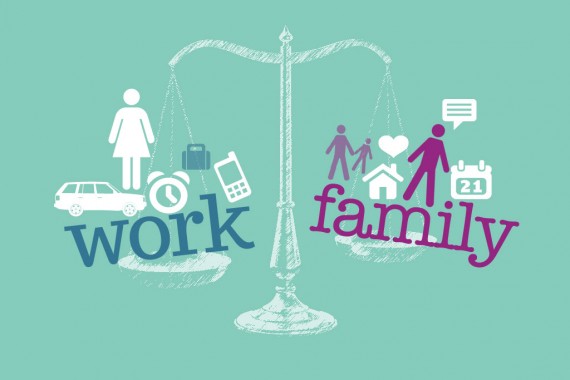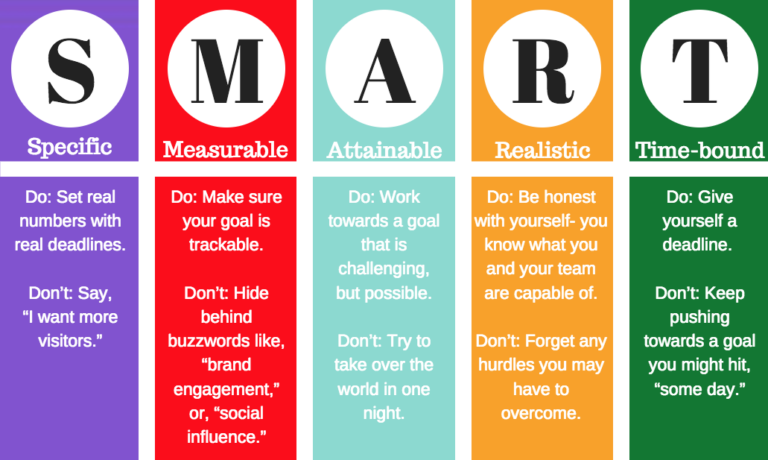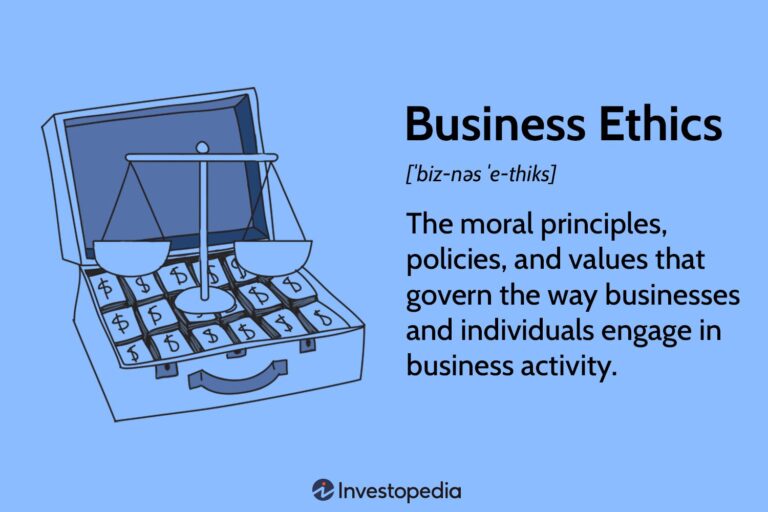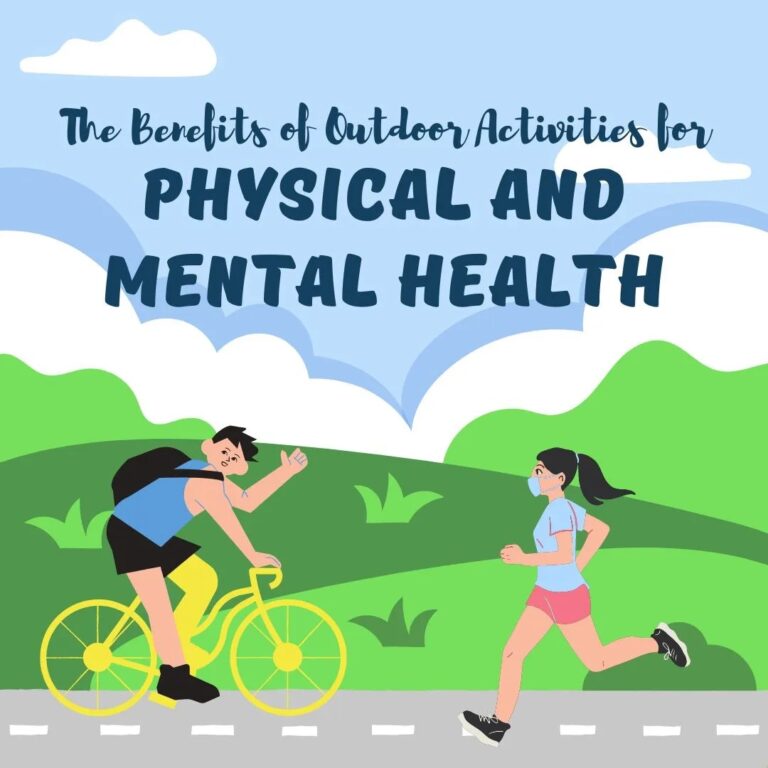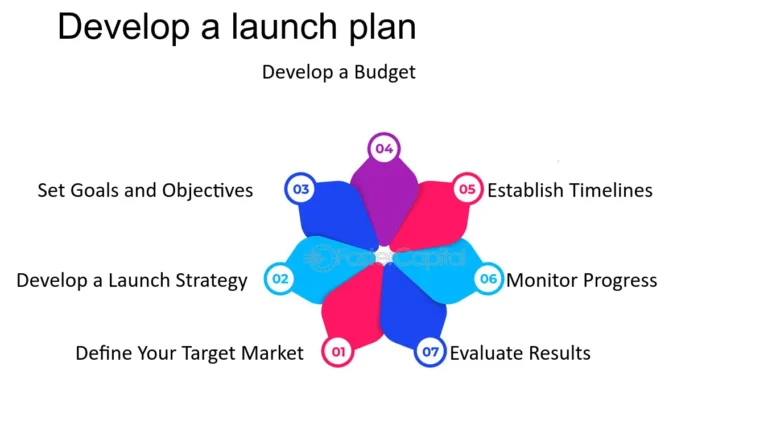How to Create a Balanced Life: Work, Family, And Personal Time
To create a balanced life, prioritize and manage your time effectively. Set boundaries between work, family, and personal activities.
Achieving a balanced life involves mindful planning and commitment. Many people struggle to juggle work, family, and personal time, leading to stress and burnout. It’s essential to establish clear boundaries and set realistic goals for each aspect of your life.
Allocating specific time slots for work tasks, family activities, and personal relaxation can help maintain harmony. Prioritizing self-care, like exercise and hobbies, ensures you stay energized and focused. Remember, a balanced life enhances overall well-being and productivity. By adopting these strategies, you can achieve a fulfilling and stress-free lifestyle.
.webp)
Credit: www.betterup.com
Introduction To A Balanced Life
Living a balanced life means having time for work, family, and yourself. It’s about finding harmony between your responsibilities and your passions. Everyone wants a life where they can manage work, enjoy time with family, and have personal moments. This blog will guide you on how to achieve that balance.
The Importance Of Balance
Balance in life brings happiness and peace. It helps you stay healthy and productive. Here are some key reasons why balance is important:
- Improves mental health: Less stress and anxiety.
- Boosts productivity: You get more done in less time.
- Enhances relationships: More quality time with loved ones.
- Increases satisfaction: You feel fulfilled and happy.
Common Challenges
Many people face challenges in creating a balanced life. Here are some common ones:
| Challenge | Description |
|---|---|
| Time management | Struggling to prioritize tasks. |
| Work pressure | Long hours and tight deadlines. |
| Family demands | Needing to be present for family. |
| Personal neglect | Ignoring self-care and hobbies. |
Understanding these challenges is the first step. Once you know the issues, you can find solutions.
Prioritizing Your Time
Balancing work, family, and personal time is challenging. The key is to prioritize your time effectively. By setting clear priorities, you can achieve a balanced life. This section will guide you on how to identify priorities and set realistic goals.
Identifying Priorities
First, you need to identify what matters most. Make a list of your daily activities. Then, categorize them into three groups: Work, Family, and Personal Time. This helps you see where your time goes.
| Category | Activities |
|---|---|
| Work | Emails, Meetings, Projects |
| Family | Meals, Playtime, Family Outings |
| Personal Time | Reading, Exercise, Hobbies |
Next, rank these activities. Which are most important to you? This helps you focus your energy on what truly matters.
Setting Realistic Goals
Now, set realistic goals for each category. Break your goals down into small, manageable tasks. This makes them easier to achieve.
- Work: Complete one project at a time.
- Family: Have dinner together every night.
- Personal Time: Exercise for 30 minutes daily.
Use a planner or app to schedule your tasks. Allocate specific times for each activity. This helps you stay on track and avoid feeling overwhelmed.
Remember, it’s okay to say no. Protect your time by only committing to what you can handle. This keeps your life balanced and stress-free.
Work-life Integration
Balancing work and personal life is crucial for overall happiness. Work-life integration helps you blend work, family, and personal time seamlessly. It is not just about splitting hours equally; it’s about finding harmony.
Flexible Work Arrangements
Flexible work arrangements offer significant benefits. Employees can choose their work hours and locations. This flexibility helps balance work tasks and personal commitments.
- Remote Work: Working from home or any location.
- Flextime: Choosing start and end times within a range.
- Compressed Workweek: Working longer hours for fewer days.
These options reduce stress and increase productivity. They also allow more time with family and personal interests.
Time Management Techniques
Effective time management is key to work-life integration. Prioritize tasks and set boundaries to make the most of your time.
| Technique | Description |
|---|---|
| Pomodoro Technique | Work for 25 minutes, then take a 5-minute break. |
| Time Blocking | Dedicate specific blocks of time to tasks. |
| Eisenhower Matrix | Prioritize tasks by urgency and importance. |
These methods help you stay focused and organized. They ensure you allocate time for work, family, and personal activities.
Quality Family Time
Spending quality family time is crucial for building strong family bonds. It creates lasting memories and nurtures relationships. Balancing work, family, and personal time can be challenging. However, dedicating time to family activities enriches your life and strengthens connections.
Creating Family Rituals
Family rituals are special activities that you do together. They bring joy and a sense of belonging. Here are some ideas for creating family rituals:
- Weekly game night: Choose a night to play games together.
- Monthly outings: Plan a fun outing once a month.
- Cooking together: Make a meal together every weekend.
These rituals can be simple but meaningful. They help create a family tradition that everyone looks forward to.
Effective Communication
Good communication is key to understanding each other. It helps resolve conflicts and builds trust. Here are some tips for effective communication:
- Active listening: Pay attention and show interest in what others say.
- Express feelings: Share your thoughts and emotions openly.
- Ask questions: Clarify doubts by asking questions.
Effective communication fosters a supportive and loving family environment. It ensures everyone feels heard and valued.
Personal Time And Self-care
Personal time and self-care are vital for a balanced life. These activities recharge your energy and improve your mental health. They help you handle work and family responsibilities better. Let’s explore the importance of self-care and how to find time for hobbies.
Importance Of Self-care
Self-care is essential for your well-being. It involves activities that make you feel relaxed and happy. Here are some reasons why self-care is important:
- Reduces Stress: Self-care activities help lower stress levels.
- Boosts Mood: Doing things you enjoy can improve your mood.
- Increases Productivity: Taking breaks can make you more productive at work.
- Improves Health: Regular self-care can lead to better physical health.
Finding Time For Hobbies
Finding time for hobbies can be challenging but is crucial. Here are some tips:
- Schedule It: Add hobby time to your calendar.
- Start Small: Begin with short, manageable sessions.
- Combine Activities: Pair hobbies with daily tasks.
- Set Goals: Create small goals for your hobbies.
Here is a table to help you plan your week:
| Day | Time for Hobbies |
|---|---|
| Monday | 30 minutes in the evening |
| Tuesday | 1 hour in the morning |
| Wednesday | 45 minutes after dinner |
| Thursday | 1 hour before bed |
| Friday | 30 minutes during lunch break |
| Saturday | 2 hours in the afternoon |
| Sunday | 1 hour before lunch |
Remember, taking care of yourself helps you take better care of others. Make self-care and hobbies a priority for a balanced life.
Setting Boundaries
Creating a balanced life requires setting boundaries. Boundaries help manage work, family, and personal time. They ensure you don’t feel overwhelmed. Establishing clear limits improves mental health and productivity.
Learning To Say No
Many struggle to say no, fearing disappointment. It’s essential to prioritize your needs. Practice saying no to tasks outside your core responsibilities. This frees up time for family and personal pursuits. Use polite but firm language. For instance, say, “I appreciate the offer, but I can’t commit now.”
Creating A Support System
A strong support system is invaluable. Surround yourself with understanding people. Communicate your boundaries clearly with them. This includes family, friends, and coworkers. Let them know your limits. They will respect your time and efforts.
Use these strategies to build a support system:
- Open communication: Share your schedule with close ones.
- Delegate tasks: Assign tasks to trusted people.
- Seek help: Don’t hesitate to ask for assistance.
Creating a support system reduces stress. It allows you to focus on important aspects of life.
Managing Stress
Managing stress is crucial for maintaining a balanced life. Stress can affect work, family, and personal time. Learning how to manage stress helps in leading a happier life.
Stress Reduction Techniques
Effective techniques can reduce stress significantly. Here are some proven methods:
- Exercise: Physical activity releases endorphins, which improve mood.
- Deep Breathing: Deep breaths can calm the mind and body.
- Healthy Diet: Balanced nutrition boosts energy and reduces stress.
- Time Management: Proper planning helps in avoiding last-minute stress.
- Hobbies: Engaging in hobbies can divert the mind from stress.
Mindfulness Practices
Mindfulness practices can greatly help in managing stress. These practices focus on being present in the moment.
- Meditation: Spend a few minutes each day in meditation.
- Yoga: Practicing yoga can enhance both mental and physical health.
- Gratitude Journaling: Write down things you are grateful for daily.
- Mindful Walking: Walk slowly and focus on your surroundings.
- Body Scan: Pay attention to different parts of your body, one by one.
Incorporate these techniques into your routine to manage stress effectively. A balanced life is within your reach.
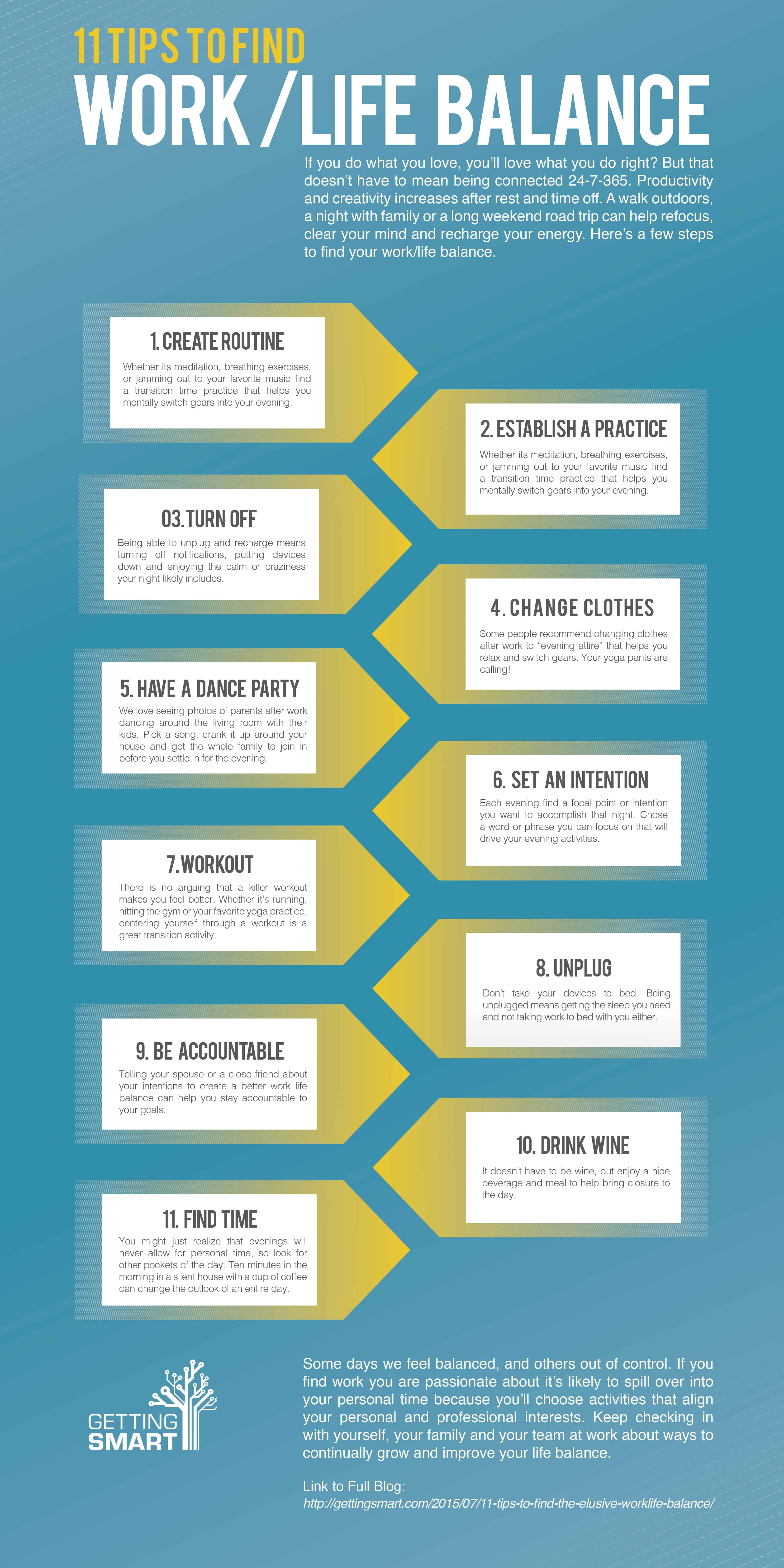
Credit: www.gettingsmart.com
Maintaining Balance
Maintaining balance between work, family, and personal time is crucial. It ensures a healthy and fulfilling life. Let’s explore some strategies to maintain this balance effectively.
Regular Self-assessment
Regular self-assessment helps identify areas needing attention. Assess your daily schedule weekly. Reflect on how you spend your time.
- Are you dedicating enough time to work?
- Is family time being neglected?
- Do you have moments for yourself?
Answer these questions honestly. Adjust your schedule based on your findings. This practice helps maintain a balanced life.
Adapting To Changes
Life changes often. Adaptability is key to maintaining balance. New job roles, family expansions, or personal interests may arise.
- Recognize the change.
- Evaluate its impact on your time.
- Make necessary adjustments.
For instance, a new baby requires more family time. Reduce work hours temporarily if possible. Delegate tasks at work to manage better.
Adapting to changes ensures a balanced lifestyle. Flexibility helps manage unexpected situations smoothly.

Credit: www.betterup.com
Conclusion
Achieving a balanced life is crucial for happiness and well-being. Prioritize work, family, and personal time wisely. Set clear boundaries and communicate effectively. Remember, a balanced life leads to greater fulfillment and productivity. Start today, and enjoy a more harmonious lifestyle.

